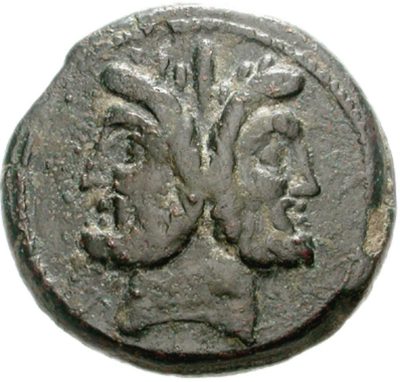Question: I have a hard time getting which planet works on which. If you have a Moon Pluto aspect, either within a chart or between charts which one affects which? Is Pluto affecting the Moon, or the Moon, Pluto?
I’m glad you asked this. There is a lot of confusion, particularly when the aspects occur between charts.
The planet that is further out will influence the inner planet, particularly with the ‘big three’. Not because they’re essentially more powerful, but because the further out, the less personal the influence. They represent  processes, powers, of drastic change. They instigate occurrences that force us to come to terms with necessary changes. Each one of them represents a type of death. These impersonal occurrences can seem cruel, but are effective as a means of change because they force our focus in a way that inner planet contacts do not. We have a personal relationship with our inner planets. We identify with them. We accept them. We know where they’re coming from. They’re in the house with us, like family. Pluto, Neptune and Uranus are the hurricanes and earthquakes and monsoons that come out of the blue and force us to rebuild. It isn’t always that dramatic, but it can be when intense aspects are formed by transit and progression. The natal aspect is a recurring pattern that will be triggered from time to time.
processes, powers, of drastic change. They instigate occurrences that force us to come to terms with necessary changes. Each one of them represents a type of death. These impersonal occurrences can seem cruel, but are effective as a means of change because they force our focus in a way that inner planet contacts do not. We have a personal relationship with our inner planets. We identify with them. We accept them. We know where they’re coming from. They’re in the house with us, like family. Pluto, Neptune and Uranus are the hurricanes and earthquakes and monsoons that come out of the blue and force us to rebuild. It isn’t always that dramatic, but it can be when intense aspects are formed by transit and progression. The natal aspect is a recurring pattern that will be triggered from time to time.
In synastry, outer planet contacts to inner are hard to manage because of this impersonal, unconscious element. If my Pluto is conjunct your Moon, unless I am very aware of my Plutonian side (and most of us are not) I won’t understand your reactions to me. I may not feel very powerful myself, and not realize that you might feel I am manipulating you emotionally. Yet, my contact with your Moon, over time, will make me more aware of my Pluto and its effects on other’s emotions. I become more aware and conscious of these powers. On the other hand, your Moon is experiencing an assault that is bringing its limitations to light. Pluto will expose any chinks in the armor, and your Moon may have many. This is painful, but over time you will find a new emotional strength. Pluto will cause you to understand your emotional patterns in a new way. The Moon, in its empathetic way, may reach out and try to placate Pluto to soften the effects, but unless the Pluto person becomes aware of the desire to manipulate and control, the Moon may be creating (reinforcing) a monster. This is how we get locked into damaging patterns. The person with the inner planet has an easier time of learning and adjusting, because the lessons will be immediate and the impulse to change will be palpable (eventually). The outer planet person is the one who has to try harder.
The outer planet brings the means for change, but the essential nature of the planet in its sign does not change. If I have Pluto in Sag square Mars in Pisces, the contact will not, in the end, make my Mars either more Scorp or Sag. Pluto square Mars describes the process of change, not the result. The ultimate goal of the outer planet contact is to experience the energy and life-changing experience instigated by the outer planet in order for the planet to become more of itself, purer in its expression. (This is true no matter which outer planet is involved.) Pluto incidents will cause the Pisces Mars to burn away the timidity and the dithering that burdens it, but the Mars will always be Piscean in expression, only more powerfully so. Pluto in Sag may force the Pisces Mars to experience things that force it to be uncomfortably and uncharacteristically adventurous, so that it learns to better use its drive and open its expression up to new areas. But it will still do it in the intuitive, compassionate manner that befits it. This same dynamic occurs when a progressed planet contacts an outer planet, either within or between charts.
The outer planet will indicate what the inner planet needs to have full expression. It’s as if something is blocking the full light of the inner planet from coming through, and the outer planet has been sent to remove it. The outer planet is essentially getting rid of the dreck on any planet it touches. It isn’t crashing through. (Though it may feel like it.) The planet remains intact, but changed by its reaction to the outer planet experience. Transiting Pluto over the Sun or Moon feels like death, but at the end of the transit we feel ourselves again, only more empowered (if we’re lucky and do the work). We haven’t turned into Scorpios. Pluto empowers us, Neptune opens us and makes us compassionate, Uranus keys us in to a higher intelligence. They’re teachers providing experiences that allow us to learn for ourselves.
This is a subtle but important thing to understand, particularly when advising clients. Astrology doesn’t ask us to change our essential natures, it just wants a better and higher expression of them. The infamous “Gods of Change” may, in fact, be more accurately described as Gods of Evolution.

I assume what you explain here applies similarly when an outer contacts an angle too, right? How might it differ? And what if the angles are square, meaning all are contacted? Let’s say someone has Ura Libra on another’s Libra ASC squaring the MC, etc.? This would seem an awful lot for Ura to burn away.
Hi Melissa–Angles behave very differently from planets. They are of another energy and purpose entirely. Please read the articles regarding angles on this site. I’ve also written on outer planet/angle contacts for Sasstrology.com.